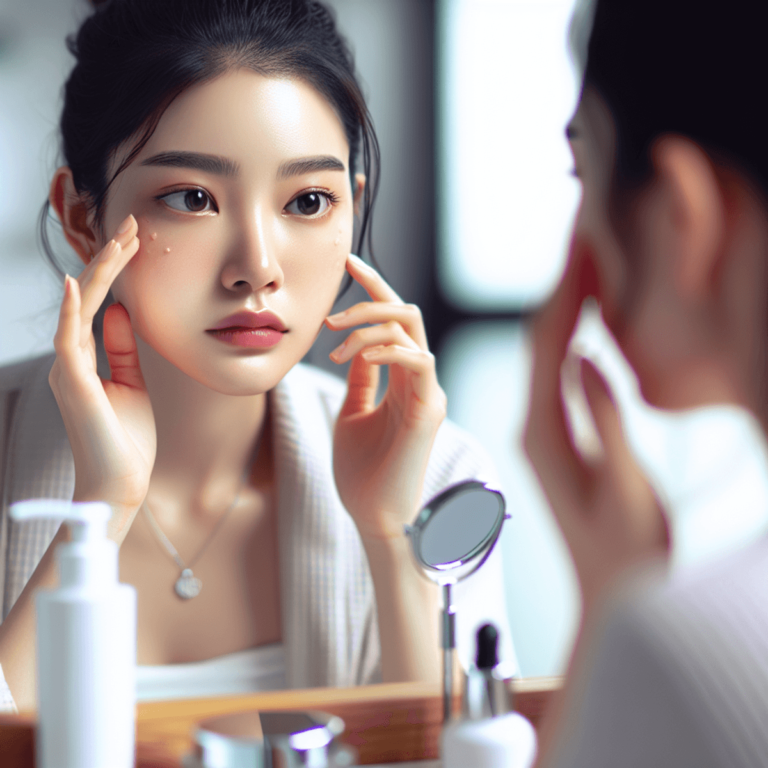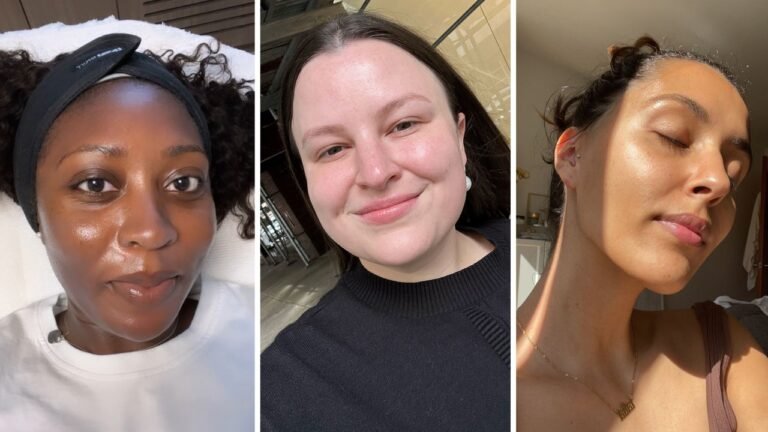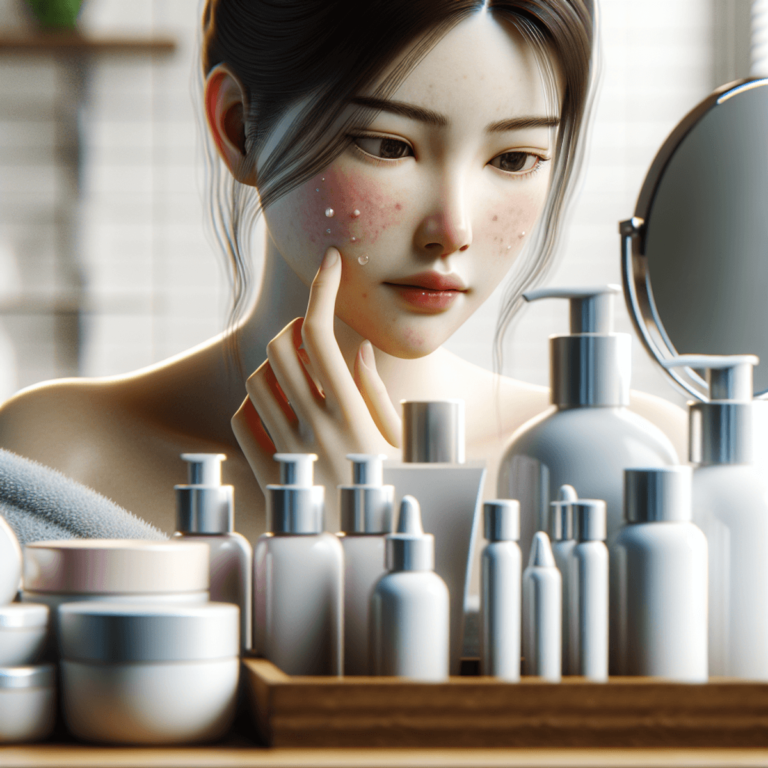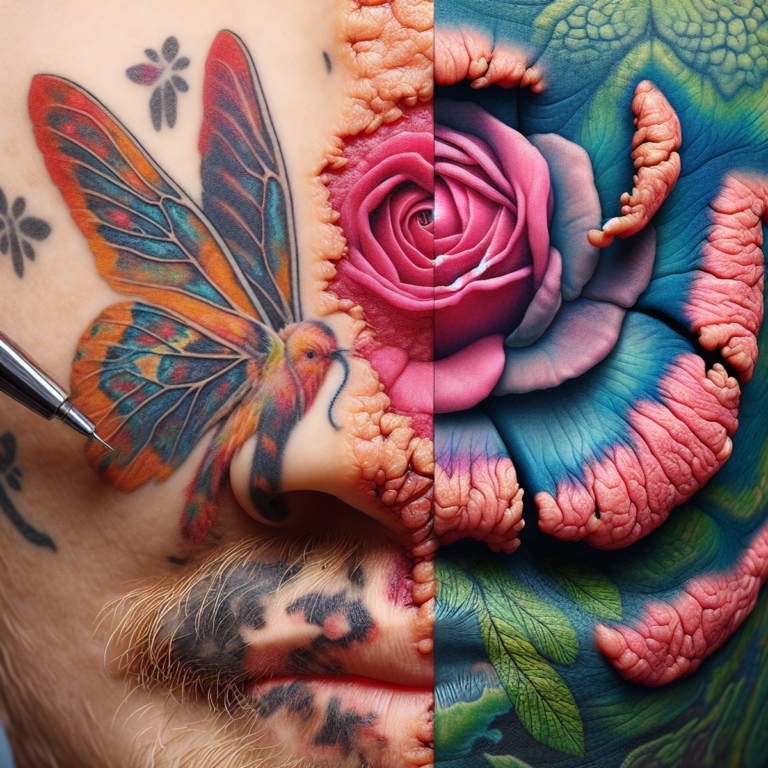Home Remedies for Acne, According to Dermatologists

Introduction
Acne affects millions of people worldwide, from teenagers battling hormonal changes to adults dealing with persistent breakouts. This common skin condition can appear anywhere on the body – face, back, buttocks, and legs – leaving both active blemishes and lasting marks that impact self-confidence.
While prescription medications and professional treatments exist, many people seek natural alternatives for treating their acne. Home remedies offer accessible, cost-effective solutions that can complement traditional treatments. These natural approaches have gained popularity for their gentle yet effective properties in managing various types of acne.
Dermatologists play a crucial role in guiding patients toward safe and effective home remedies. Their expertise helps distinguish between beneficial natural treatments and potentially harmful DIY solutions. Through clinical experience and scientific research, dermatologists have identified several home remedies that can:
- Reduce inflammation and redness
- Control excess oil production
- Fight acne-causing bacteria
- Promote skin healing
- Prevent future breakouts
Understanding these dermatologist-approved home remedies empowers you to make informed decisions about your skincare routine. By combining professional guidance with natural treatments, you can develop an effective strategy to manage acne and achieve clearer, healthier skin.
Understanding Acne
Acne comes in different forms, and each type requires a specific treatment approach. Let’s take a closer look at the main types of acne you might come across:
1. Inflammatory Acne
- Papules: Small, red, tender bumps
- Pustules: Red bumps filled with white pus
- Nodules: Large, painful bumps deep under the skin
- Cysts: Deep, pus-filled bumps that can cause scarring
2. Non-Inflammatory Acne
- Blackheads: Open pores filled with oxidized debris
- Whiteheads: Closed pores filled with white or yellowish pus
Your acne can develop due to various factors working together:
Hormonal Changes
- Puberty
- Menstrual cycles
- Pregnancy
- Polycystic ovary syndrome (PCOS)
Lifestyle Factors
- High-glycemic foods
- Dairy products
- Insufficient sleep
- Touching your face frequently
- Using comedogenic products
Environmental Triggers
- Humidity
- Pollution
- Certain medications
- Heavy sweating
- Tight clothing or equipment
Stress Impact
Stress triggers hormonal changes that can:
- Increase sebum production
- Slow wound healing
- Worsen inflammation
- Disrupt sleep patterns
Understanding these factors is crucial for creating an effective treatment strategy. The type of acne you have and the triggers behind it will determine which remedies work best for your skin.
By identifying your specific acne patterns and triggers, you can choose targeted treatments that address the root causes rather than just treating the surface symptoms.
Regularly assessing your skin is important to track any changes and evaluate the effectiveness of your treatments. Pay attention to how your skin reacts to different factors throughout your day, week, and month. This awareness will be valuable when selecting appropriate treatment methods and preventing future breakouts.
Effective Home Remedies for Acne
Natural remedies offer a gentle approach to treating acne, backed by dermatologists for their anti-inflammatory and healing properties. These solutions work best when incorporated into a consistent skincare routine.
1. Aloe Vera
Aloe vera stands out as a powerful natural remedy for acne treatment. This succulent plant contains compounds that actively fight inflammation and bacteria while promoting skin healing.
Key Benefits of Aloe Vera for Acne:
- Natural antibacterial properties
- Reduces redness and inflammation
- Accelerates wound healing
- Moisturizes without clogging pores
- Helps fade acne scars
How to Use Aloe Vera:
- Direct ApplicationCut an aloe leaf lengthwise
- Scoop out the clear gel
- Apply directly to affected areas
- Leave on for 15-20 minutes
- Rinse with cool water
- DIY Aloe Vera Face MaskMix 2 tablespoons pure aloe gel
- Add 1 teaspoon honey
- Apply to clean face
- Leave for 20 minutes
- Use 2-3 times weekly
Tips for Best Results:
- Use fresh aloe vera gel when possible
- Perform a patch test before full application
- Store unused gel in an airtight container
- Apply on clean, dry skin
- Use consistently for optimal results
Precautions:
- Avoid applying near eyes
- Don’t use if allergic to aloe
- Stop use if irritation occurs
- Choose pure aloe vera without added fragrances
Dermatologists recommend using aloe vera as part of a comprehensive skincare routine, particularly for mild to moderate acne. The gel’s soothing properties make it especially effective for inflammatory acne and post-acne marks.
2. Honey
Raw honey is a powerful natural remedy for acne due to its unique antibacterial properties. Its high concentration of hydrogen peroxide and natural enzymes creates an environment where acne-causing bacteria struggle to survive.
Benefits of Honey for Acne Treatment:
- Natural antibacterial agent
- Helps maintain skin moisture balance
- Reduces inflammation and redness
- Promotes faster healing of acne lesions
- Contains natural antioxidants
How to Use Honey for Acne:
- Spot Treatment: Apply a small amount of raw honey directly to acne spots, leave on for 15-30 minutes, then rinse with lukewarm water.
- Honey Face Mask: Mix 1 tablespoon raw honey with 1/2 teaspoon cinnamon, apply evenly to clean face, leave for 10-15 minutes, then rinse thoroughly.
- Honey Cleanser: Mix equal parts honey and warm water, massage gently onto damp skin, then rinse with cool water.
Best Practices:
- Use raw, unpasteurized honey
- Perform a patch test before full application
- Apply to clean, dry skin
- Store honey in a cool, dry place
- Use within 30 minutes of mixing with other ingredients
Research suggests Manuka honey offers enhanced antimicrobial benefits compared to regular honey varieties. Its unique properties make it particularly effective against stubborn acne-causing bacteria.
3. Tea Tree Oil
Tea tree oil is a powerful natural remedy for acne treatment, backed by scientific research for its antimicrobial properties. This essential oil targets Cutibacterium acnes – the bacteria responsible for acne breakouts – while reducing skin inflammation.
Key Benefits of Tea Tree Oil:
- Kills acne-causing bacteria
- Reduces redness and swelling
- Helps dry out existing pimples
- Prevents new breakouts
- Works on cystic acne and blackheads
Safe Application Guidelines:
- Dilute tea tree oil with a carrier oil (1:9 ratio)
- 1 drop tea tree oil
- 9 drops jojoba or coconut oil
- Apply the mixture directly to affected areas using a cotton swab
- Use once or twice daily after cleansing
Important Safety Notes:
- Never apply undiluted tea tree oil directly to your skin
- Perform a patch test before regular use
- Stop using if irritation occurs
- Store in a dark bottle away from sunlight
You can incorporate tea tree oil into your existing skincare routine by adding a few drops to your regular moisturizer or facial cleanser. For spot treatment, apply the diluted solution directly to individual pimples before bed.
Some people experience results within a few days, particularly for surface-level acne. Deeper, cystic acne may require several weeks of consistent application.
Additionally, it’s worth noting that tea tree oil has been shown to have antioxidant properties, which can further enhance its effectiveness in treating acne and improving overall skin health.
4. Apple Cider Vinegar
Apple cider vinegar is a powerful natural toner for acne-prone skin. It contains acetic acid, which helps maintain the skin’s pH balance and control oil production. The antimicrobial properties in ACV also target acne-causing bacteria, making it effective for different types of breakouts. Interestingly, its benefits aren’t limited to just acne; it’s also been noted for its effectiveness in managing conditions like eczema, as explored in this article on apple cider vinegar for eczema.
Benefits of Apple Cider Vinegar for Acne:
- Balances skin pH levels
- Controls excess oil production
- Unclogs pores
- Reduces inflammation
- Fights bacteria
Creating Your ACV Toner:
- Mix 1 part raw, unfiltered apple cider vinegar with 4 parts water
- Store the solution in a clean, dark glass bottle
- Apply with a cotton ball after cleansing
- Use once daily, preferably at night
- Follow with your regular moisturizer
Important Safety Tips:
- Always perform a patch test before full application
- Never apply undiluted ACV directly to your skin
- Start with a weaker solution (1:5 ratio) if you have sensitive skin
- Discontinue use if irritation occurs
- Store your toner in a cool, dark place
Pro tip: Look for raw, unfiltered apple cider vinegar with “the mother” – the cloudy substance containing beneficial enzymes and bacteria that enhance its therapeutic properties.
5. Green Tea
Green tea stands out as a powerful natural remedy for acne, packed with polyphenols called catechins. These antioxidants target inflammation at its source while reducing excess sebum production – two key factors in acne development.
Scientific Benefits for Acne-Prone Skin:
- EGCG (epigallocatechin gallate) compounds fight bacterial growth
- Tannins shrink pores and balance oil production
- Antioxidants neutralize free radicals that damage skin cells
DIY Green Tea Treatments:
- Green Tea Toner: Brew 1 cup of green tea and let it cool completely. Transfer to a spray bottle and mist onto clean skin twice daily. Store in refrigerator for up to 1 week.
- Anti-Inflammatory Compress: Steep 2 green tea bags in hot water, then cool in refrigerator for 15-20 minutes. Apply cooled tea bags directly to inflamed areas and hold for 5-10 minutes.
- Green Tea Face Mask: Mix cooled green tea with 1 tablespoon honey and 1 teaspoon matcha powder. Apply to clean face for 15 minutes, then rinse with lukewarm water.
Application Tips:
- Use organic, pure green tea without additives
- Apply treatments to freshly cleansed skin
- Perform a patch test before full application
- Combine with gentle moisturizer for best results
6. Turmeric
Turmeric stands out as a powerful natural remedy for acne treatment, thanks to its active compound curcumin. This bright yellow spice contains potent anti-inflammatory and antibacterial properties that can help reduce acne-related inflammation and redness.
Benefits for Acne Treatment:
- Reduces inflammation and redness
- Fights acne-causing bacteria
- Helps fade post-acne marks
- Balances skin’s oil production
- Promotes natural skin healing
How to Use Turmeric for Acne:
- Basic Turmeric PasteMix 1/2 teaspoon turmeric powder with water
- Apply as spot treatment on affected areas
- Leave for 10-15 minutes
- Rinse with lukewarm water
- Turmeric-Honey MaskCombine 1 teaspoon turmeric with 2 teaspoons raw honey
- Apply evenly to clean skin
- Wait 15-20 minutes
- Wash off gently
Important Precautions:
- Always perform a patch test 24 hours before full application
- Use on clean, dry skin
- Avoid applying near eyes or sensitive areas
- Be aware of temporary yellow staining on skin and clothing
- Choose high-quality, food-grade turmeric
- Don’t leave on skin longer than recommended
For best results, use turmeric treatments 2-3 times per week. The yellow staining typically fades within a day and can be reduced by mixing turmeric with milk or yogurt instead of water.
7. Zinc Supplements
Zinc is an important mineral that can help manage acne in several ways. It helps control oil production in the sebaceous glands of your skin, which reduces excess sebum that can clog pores and cause breakouts. Studies have shown that zinc also has anti-inflammatory properties, which can soothe existing acne lesions and speed up the healing process of damaged skin.
- 30-45mg of elemental zinc per day for acne treatment
- Take supplements with food to minimize stomach discomfort
- Choose zinc gluconate or zinc citrate for better absorption
Benefits for Acne-Prone Skin:
- Reduces inflammation and redness
- Supports natural skin healing
- Controls bacterial growth
- Helps regulate hormonal balance
- Strengthens immune system response
Important Precautions:
- High doses (>100mg daily) can cause:
- Nausea
- Stomach pain
- Loss of appetite
- Reduced copper absorption
- Start with a lower dose and gradually increase
- Take breaks between supplement cycles
For optimal results, combine zinc supplementation with a balanced diet rich in zinc-containing foods like pumpkin seeds, lean meats, and legumes. Track your skin’s response to supplementation and adjust dosage accordingly under professional guidance.
Additional Ingredients That Can Help With Acne Treatment
Several natural ingredients show promise in treating acne, though research remains limited:
- Egg Whites – Create a temporary tightening effect on pores and may reduce excess oil production
- Colloidal Oatmeal – Soothes inflamed skin and reduces redness through its anti-inflammatory properties
- Quinoa – Rich in amino acids and vitamins that support skin barrier function
Quick-Relief Options:
- Mix egg white with honey for a pore-tightening mask
- Create an oatmeal paste with warm water for spot treatment
- Apply cooled chamomile tea bags to reduce inflammation
Note: While these ingredients can complement your skincare routine, they shouldn’t replace prescribed treatments for severe acne. Always patch test new ingredients and consult your dermatologist before starting any new treatment.
FAQs (Frequently Asked Questions)
What are some effective home remedies for acne?
Effective home remedies for acne include using aloe vera for its anti-inflammatory properties, honey for its antibacterial effects, and tea tree oil known for its ability to inhibit acne-causing bacteria. These natural treatments can be applied topically to help soothe and heal the skin.
How can I remove pimples naturally and permanently?
To remove pimples naturally, consider using aloe vera gel directly on the affected areas, applying honey as a spot treatment, or using diluted tea tree oil. Additionally, maintaining a balanced diet and managing stress levels can help prevent future breakouts.
What types of acne are there and how do they differ?
There are several types of acne including pimples (small red bumps), cystic acne (deep, painful lumps), and blackheads (clogged pores that appear dark). Each type has distinct characteristics and may require different treatment approaches.
What common causes and triggers contribute to the development of acne?
Common causes of acne include hormonal changes, dietary factors, and stress. Understanding these triggers is crucial in managing and treating acne effectively.
How can I get rid of pimple marks?
To get rid of pimple marks, you can use natural remedies like aloe vera or honey, which may help lighten the scars. Additionally, over-the-counter creams specifically designed for scar removal can also be effective.
Is it important to consult a dermatologist for severe acne cases?
Yes, it is essential to consult with a dermatologist for severe or persistent cases of acne. They can provide tailored advice and recommend appropriate treatments based on individual skin types and conditions.










